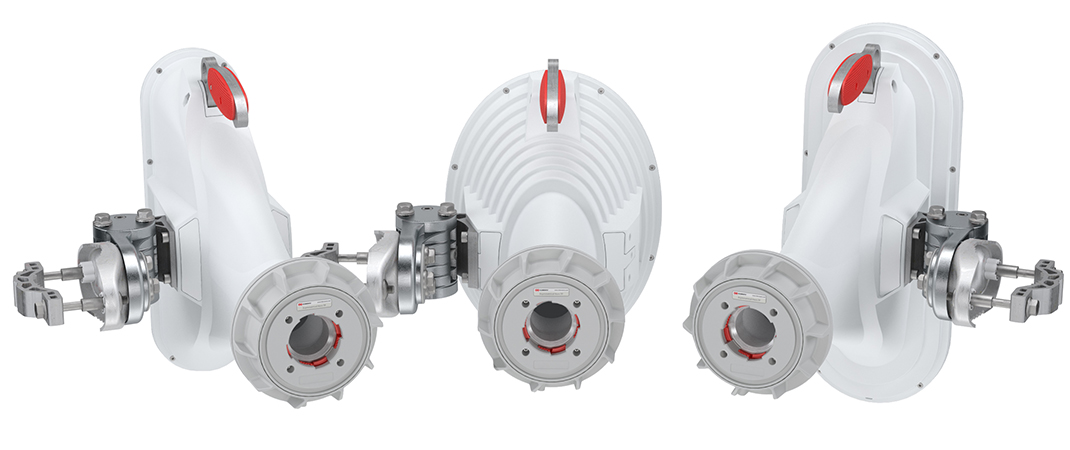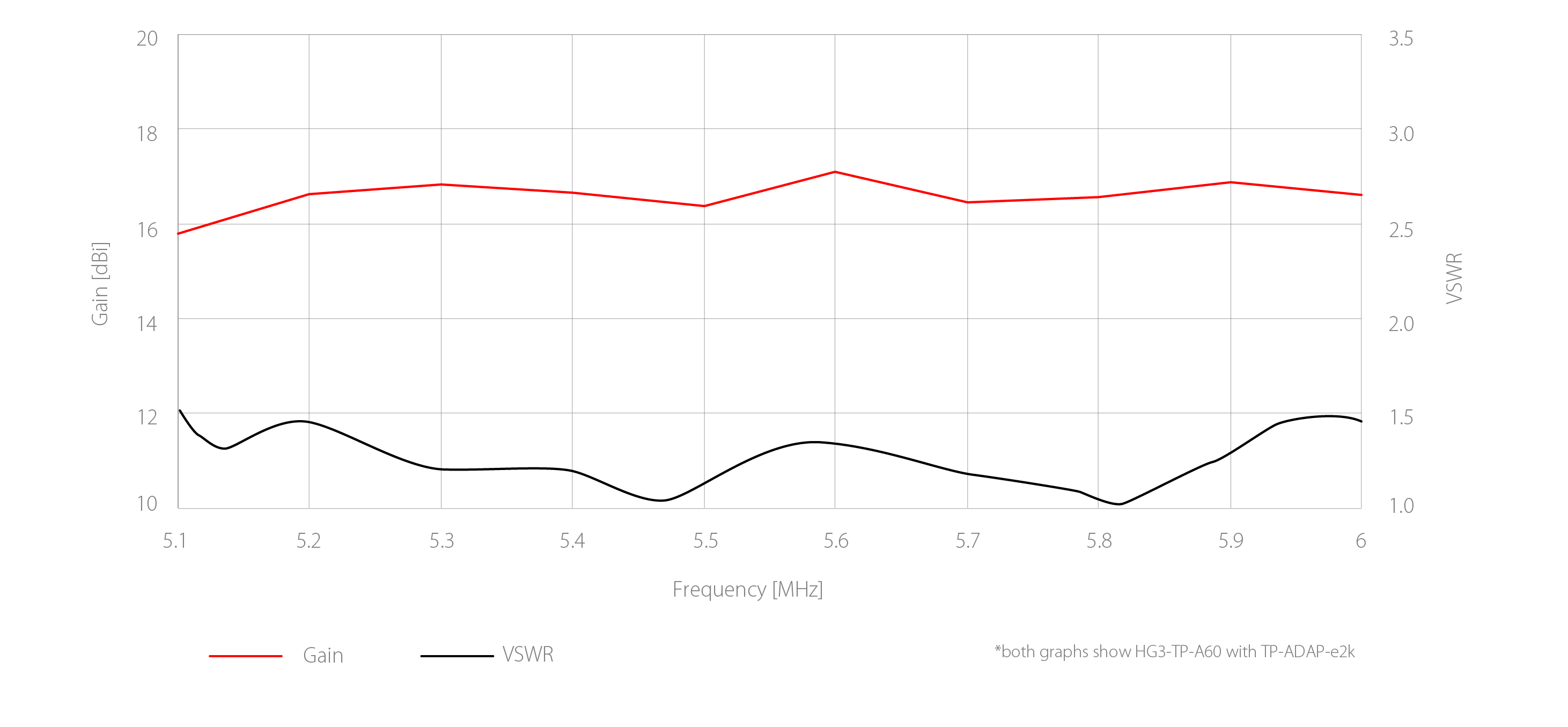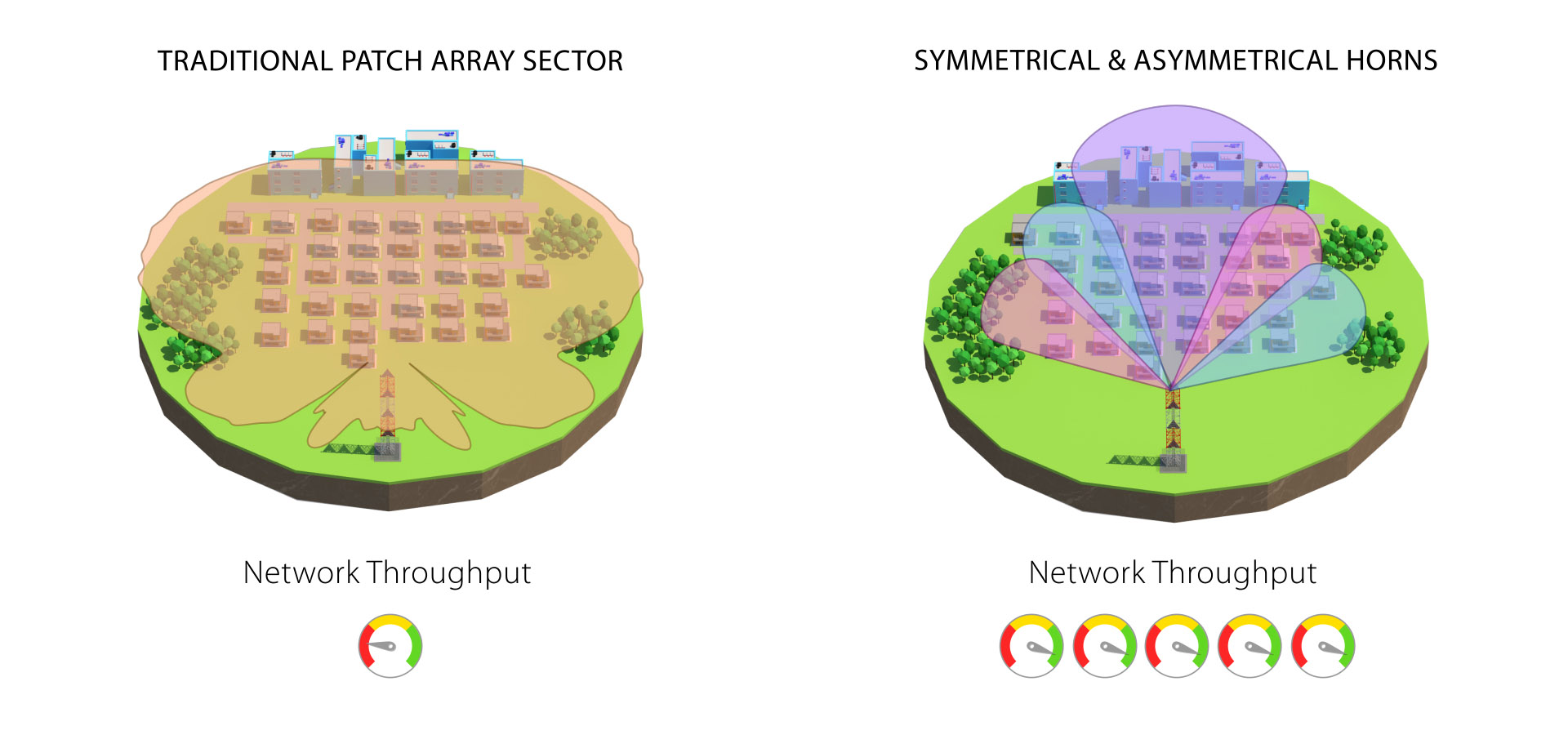Asymmetrical Horn TP Antennas 90º (90ºH 25ºV) Horn Type 5180-6000 MHz Highly Efficient, No Cables, No Loss, No Lobes Ready for TwistPort
Top Highlights:
- Aperture: 90° in horizontal and 25° in vertical
- Gain: 16 dBi
- Frequency range: 5180 - 6000
- Includes mounting
- 1-year warranty... more info


Model: HG3-TP-A90
Brand: RF ELEMENTS
Warranty: 1 year
Contact your Sales Executive to obtain your first password.
EPCOM Certified Products
We test, inspect and restore all EPCOM products to working conditions.
| Stock | Classification | Your Price |
|---|---|---|
| On Open Box (*A) | 94.99 |
Optional Accessories
Product Specifications
Game-Changing Sector Antennas
Asymmetrical Horn TP Antennas provide asymmetrical beam shape and game-changing TwistPortTM (TP) connector. Asymmetrical Horn TP Antennas provide excellent noise rejection, network scalability, and throughput increase. Providing specific beam shape, increased antenna gain, and excellent noise rejection, Asymmetrical Horn TP antennas complement the successful Symmetrical Horn Antennas.

Unique Asymmetrical Beam
Asymmetrical Horn TP Antennas have a unique beam shape. The beam cross-section in boresight is elliptical: wide in azimuth and narrow in the elevation plane. This is useful for deployments where asymmetrical beam shape delivers better coverage.
No Side Lobes
Asymmetrical Horn TP Antennas have naturally depressed sidelobes: they focus energy into a single main beam. The absence of side lobes enables excellent noise immunity of Asymmetrical Horn TP Antennas.
Wide Band Performance
The radiation pattern of Asymmetrical Horn TP Antennas is stable over the whole frequency range.
Balanced H + V Beams
Asymmetrical Horn TP Antennas have balanced Horizontal and Vertical beam patterns. Balanced H+V beams are very difficult to achieve for an antenna with an asymmetrical beam shape and this is the area where all competitive products on the market fail. Balanced H+V beams are critical for link performance.
Gain Performance
Asymmetrical Horn TP Antennas provide increased gain when compared to Symmetrical Horn TP Antennas with the same azimuth beamwidth. Asymmetrical Horn TP Antennas cover ultra-wide frequency range: 5180-6000 MHz with excellent VSWR performance.

Perfect Coverage Pattern
Mainstream patch array sector antennas have a radiation pattern extremely wide in azimuth and extremely flat in the elevation plane. If an AP is deployed on a tall tower, customers near the tower suffer from a low AP signal level. Asymmetrical Horn TP Antennas provide valuable extra degrees in elevation beamwidth, shrinking the null zone while preserving increased gain for long-range performance.
Breakthrough Scalability: Expanded
RF elements® Horn TP Antennas provide extraordinary scalability options. Asymmetrical Horn TP Antennas are the new addition to the toolbox. Unique beam performance, precise radiation patterns, and increased gain push system scalability even further.

TwistPortTM Connector
Asymmetrical Horn TP Antennas feature our industry-changing TwistPortTM connector, a patent-pending quick-locking waveguide port. TwistPortTM is virtually lossless: there are no coaxial connectors or cables that attenuate the signal. Connecting radios is ingeniously simple - “twist and lock” - with a single hand!
Cross-Platform Compatibility
A wide range of TwistPortTM Adaptors enables connection of the most popular connectorized radios of third-party vendors, such as UBNTTM, MimosaTM, MikroTikTM or Cambium NetworksTM, directly to any TwistPortTM-enabled antenna

Built Like a Tank
Asymmetrical Horn TP Antennas have a solid aluminum body, built to last and resist any weather conditions. We use the most suitable materials: die-cast, stamped, and extruded aluminum; stainless steel, high-quality ABS plastic, and high-density polyethylene.

Innovative Bracket
Asymmetrical Horn TP Antennas feature an innovative mounting system. The mount is separated from the antenna, making the installation and adjustment quick and easy.
Step 1: Bracket Installation
First, install the bracket on the pole. The pole bracket is reversible: it can be mounted on the left or the right side of the antenna.
Step 2: Antenna Adjustment
Simply slide the antenna in the bracket and adjust the elevation and the azimuth. Tighten the screws to finish the installation.
Only one tool is needed for the entire installation.









